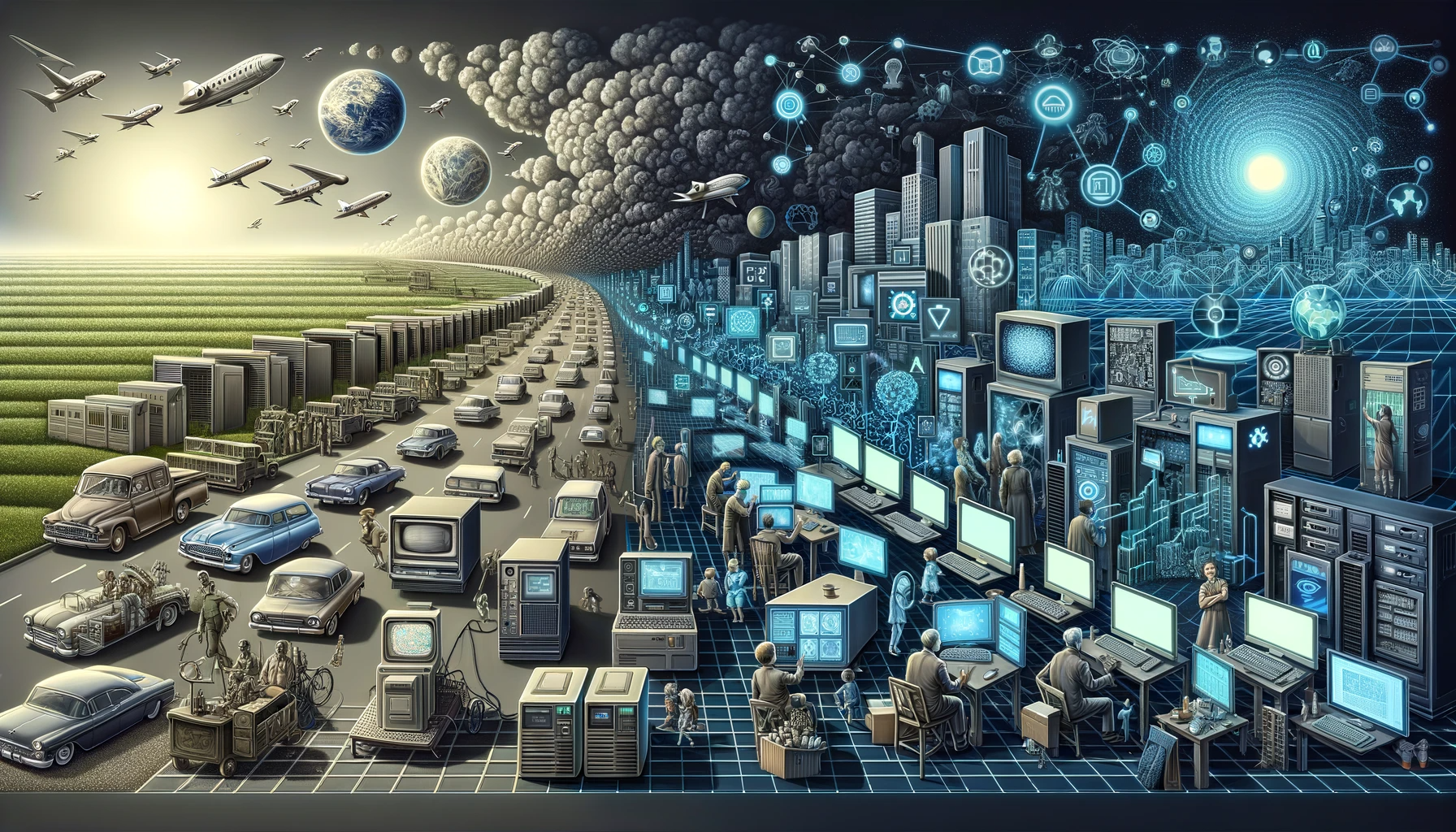The Transformative Power of AI in Government Contracting


Marc Andreessen, a prominent figure at Andressen Horowitz, recently shared his insights in a blog post titled “Why AI Will Save the World.” This post delves into the unique trajectory of AI adoption, contrasting it with the historical paths of computers and the internet. Andreessen also addresses the implications for government regulators and the potential impact on Government Contracting (GovCon).
The Dawn of the Computer Age
The computer revolution, a major milestone in technology, initially saw heavy investment and use by governments and large corporations. During World War II, the U.S. and Britain played pivotal roles in the development of early computers, like the ENIAC, for wartime efforts. In the post-war era, corporations such as IBM developed mainframes, revolutionizing business and government operations. By the 1970s, companies like Apple and Microsoft began to democratize computing, leading to the era of personal computers that fundamentally changed communication, information access, and entertainment.
The Growth of the Internet
Similarly, the internet began as a military and academic network in the late 1960s with ARPANET, evolving into the World Wide Web in the 1990s. This expansion was driven initially by governmental and corporate use, eventually becoming universally accessible and altering the global communication landscape.
AI's Unique Adoption Path
AI is diverging from this trend. Initially a domain for government-funded projects, AI has seen rapid adoption among consumers and small businesses. The last decade has brought significant advancements in AI accessibility and affordability. Platforms like Huggingface and GitHub have democratized AI, offering open-source models and resources, appealing to a wider audience, especially small businesses and startups.
AI in Government Contracting
In the realm of GovCon, small businesses are leading the way in adopting AI, using tools like UseRogue to compete effectively with larger firms. Larger entities, including government agencies, are more cautious, focusing on legal, privacy, and ethical considerations.
The Key Takeaway
This shift in AI adoption, driven by consumers and small businesses, presents a unique opportunity. While small businesses often face challenges scaling up, AI offers them tools to enhance productivity and competitiveness. This could potentially allow them to dominate markets, revolutionizing GovCon and empowering smaller players to succeed and reshape the industry.